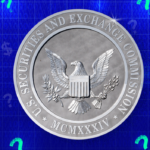
U.S. Senator Cynthia Lummis has introduced the “Bitcoin Act of 2024” for a Congressional vote. The proposed legislation outlines the creation of a federal strategic Bitcoin reserve.
“The bill proposes establishing a strategic Bitcoin reserve and other programs to ensure transparent management of federal Bitcoin assets, offset expenses using Federal Reserve resources, and achieve other objectives,” the document states.
Key Provisions of the Bill
The legislation includes plans to purchase up to 1 million BTC over five years (capped at 200,000 BTC annually) using Federal Reserve gold reserves. The reserve must be held for a minimum of 20 years, with limited exceptions. Management and custody of the Bitcoin will be overseen by a designated “secretary,” responsible for developing a proof-of-reserves system.
“The secretary must ensure geographic distribution of reserve facilities across the United States to minimize risks of simultaneous compromise and enhance resilience,” the bill stipulates.
After the initial holding period, the secretary is prohibited from recommending the sale of more than 10% of the reserve’s assets within a two-year period.
Terminology in the Legislation
The bill introduces several key terms such as “airdrop,” “Bitcoin purchase program,” “cold storage,” and “fork.” These terms clarify processes related to managing and distributing Bitcoin within the reserve system, though they are familiar within the cryptocurrency industry.
Interestingly, the document exclusively uses the term “Bitcoin” rather than “cryptocurrency,” even when discussing broader digital asset concepts. For instance, in the context of the reserve, an airdrop refers to the “gratuitous distribution of digital assets to Bitcoin holders in a scalable, equitable, and non-discretionary manner.”
Expectations and Concerns
Mike Novogratz, CEO of Galaxy Digital, suggested that creating a U.S. Bitcoin reserve could propel Bitcoin’s price to $500,000. However, he expressed concerns about potential political disagreements and intergovernmental struggles that could obstruct the initiative.
“If the U.S. truly establishes a Bitcoin reserve, its price could skyrocket, but internal political conflicts may hinder this vision,” Novogratz said.
Michael Saylor, founder of MicroStrategy, previously referred to creating a Bitcoin reserve as “the best deal of the 21st century.”
Broader Context
Similar proposals have explored integrating digital gold into national financial systems, sparking interest among investors and governments alike. If successful, this initiative could mark a pivotal moment for the global cryptocurrency landscape.














 Cryptol – your source for the latest news on cryptocurrencies, information technology, and decentralized solutions. Stay informed about the latest trends in the digital world.
Cryptol – your source for the latest news on cryptocurrencies, information technology, and decentralized solutions. Stay informed about the latest trends in the digital world.